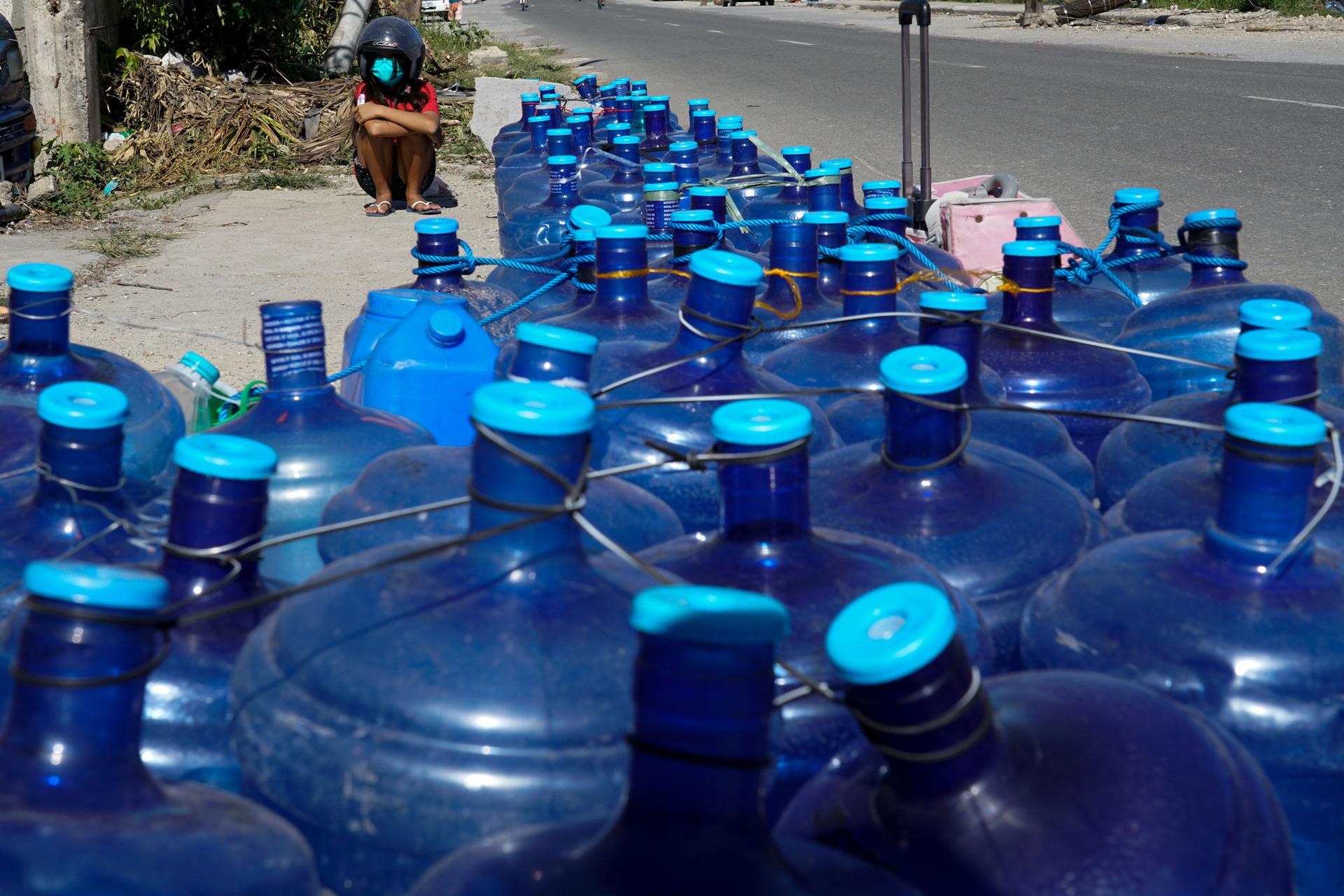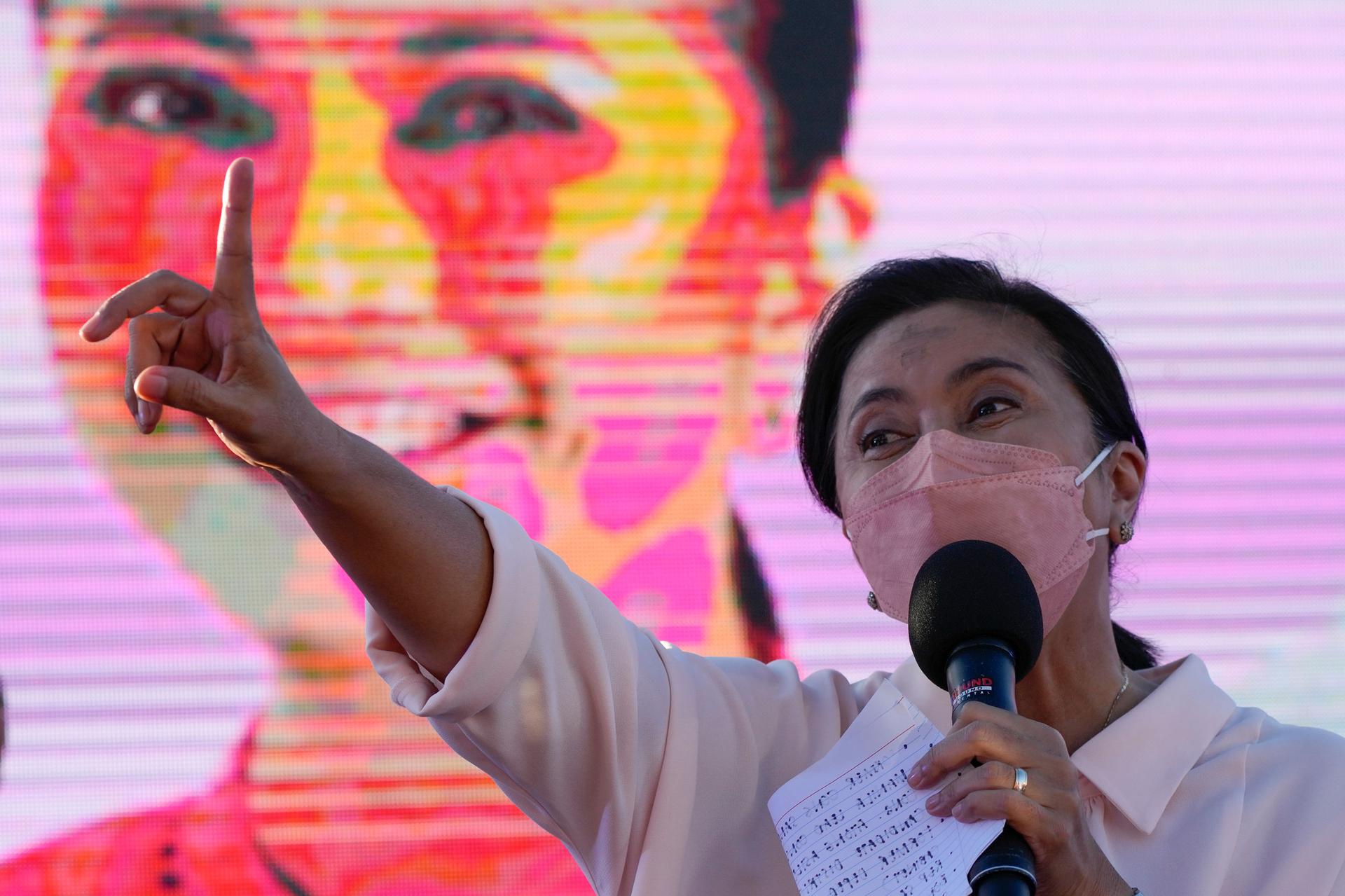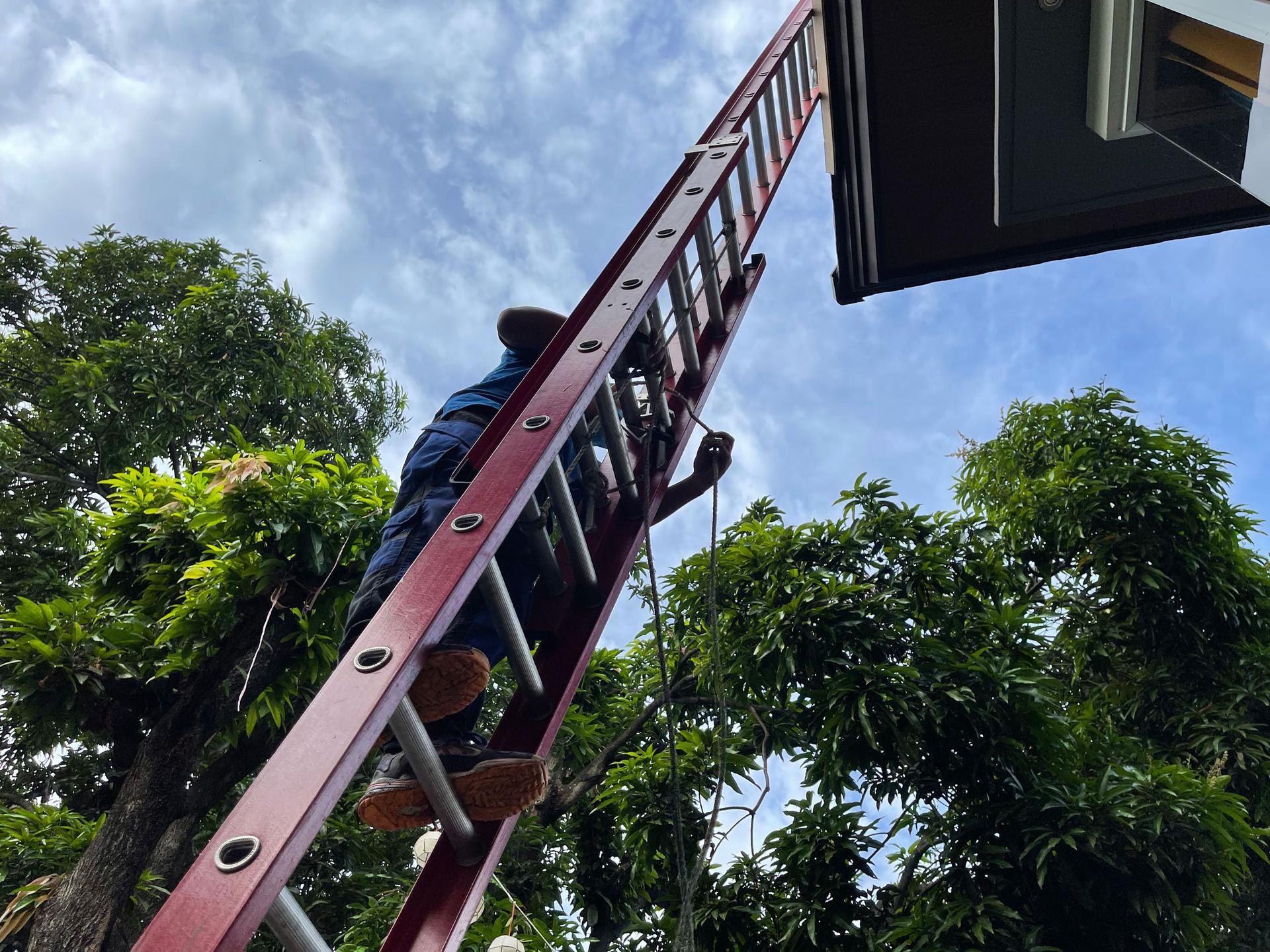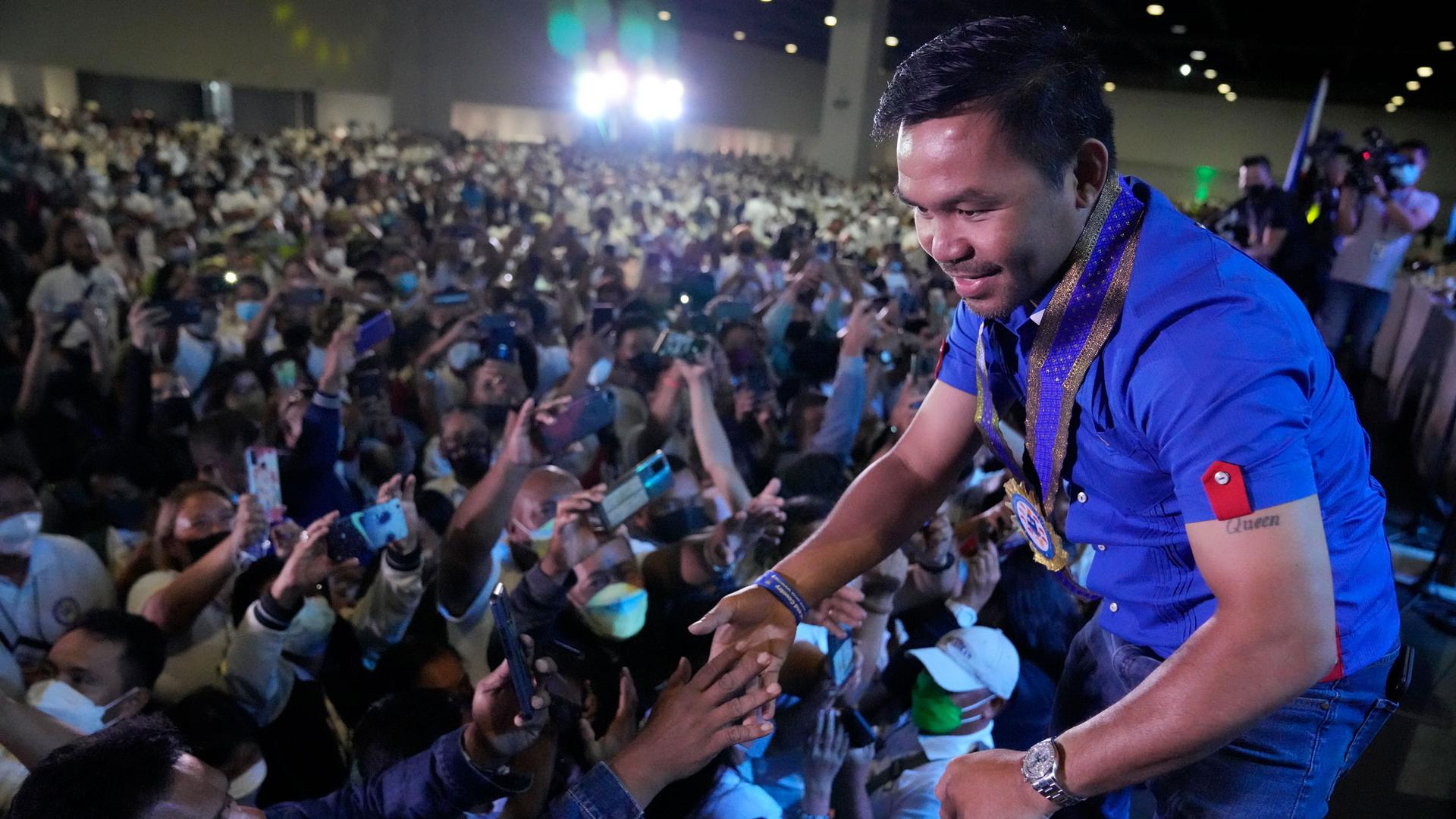Climate change is taking center stage on the campaign trail leading up to the Philippines’ national elections.
Candidates are talking about renewable energy more than ever before, filling activists with hope that the next administration will finally make climate change a mainstream issue.
“I think, probably for the first time, energy is getting the attention it deserves.”
“I think, probably for the first time, energy is getting the attention it deserves,” said Albert Dalusong III, the energy transition adviser at the Manila-based think tank Institute for Climate and Sustainable Cities.
He points to a recent commercial issued by presidential frontrunner Ferdinand “Bongbong” Marcos Jr., the son of late dictator Ferdinand Marcos, featuring a model wind turbine.
It’s a symbol that declares, “I’m for clean energy,” Dalusong said.
Related: The dramatic jingles of election season in the Philippines
Since campaign season officially began in February, even longshot candidates such as Manny Pacquiao, Panfilo “Ping” Locson and Leody de Guzman are addressing climate change and renewable energy in stump speeches and media interviews.
Intense typhoons have brought the public’s attention to the impact of climate change in the Philippines, Dusulong said. But a diminishing water supply is also a concern, due partly to drought.
Related: Campaign season in the Philippines ramps up

Electricity usage is also skyrocketing as global temperatures increase, creating high demand for air conditioning. In February, Dalusong’s office released a report that warned that the electric grid may not hold up during the hottest months this year.
“And if the administration cannot deliver basic services, there’s a problem. It’s a direct impact on the people,” he said.
Right now, 40% of the Philippines’ electricity comes from coal — the dirtiest fuel — mostly imported from Indonesia. In 2020, the Philippines announced a moratorium on any new coal-fired power plants, but energy companies continue to lobby for coal to burn in their plants. They say coal is still the cheapest and most reliable fuel available, Dalusong said.
Related: Indonesia poised to ease export ban on thermal coal
But that’s not always the case, because coal-fired power plants are known to ratchet their power outputs up and down based on power demand and coal supply, he explained.
“In fact, it is so unreliable that I’m calling it intermittent because the power plants shut down randomly,” he said. “Now that, to me, is intermittent.”
The World reached out to all five major power companies in the Philippines about Dalusong’s recent report — two responded.
An AboitizPower spokesperson said via email that the company plans to meet the Philippines’ power needs “throughout the forecasted peak demand period this summer.” AboitizPower invests in renewable power sources such as solar, geothermal and hydro, and is the largest owner and operator of renewable energy power generation in the Philippines, based on installed capacity, according to the email.
Adding additional renewable energy options to the mix will allow for more flexibility for power companies, Dalusong said. And more renewable energy options will also help create more jobs.
Wind farms need a lot of employees because turbines require a high level of maintenance; biomass fuel sites also require a large number of workers to harvest and plant; even hydroelectricity outfits need employees dedicated to protecting the watersheds.
“There are more jobs in renewables, primarily because they are smaller in scale and more distributed,” Dalusong said.
Many presidential candidates are plugging sustainable development and renewable energy, but most still fall a bit short on policy specifics.
Related: A star-studded list of candidates files for president in the Philippines
But even a conversation on green jobs has climate activists excited, such as Joshua Villalobos, co-founder of the group Youth for Climate Hope. He notes that current Vice President Leni Robredo’s 5-point labor plan includes adding more green jobs.
“I love that, because climate jobs was not discussed, I think, even in the past year, so it’s very important that she raised that,” he said.

A renewable energy market already exists in the Philippines with about 24% of its energy coming from renewables. The current government has committed to boosting that number to 35% by 2030.
Companies like Philergy, a German-Filipino solar company, can help the country get there.
Established in 2011, Philergy’s founder Jochen Staudter said he saw massive market potential when he first came from Germany to the Philippines. The tropical country with lots of natural sunlight also has some of the highest electricity rates in Southeast Asia.
“The fact that we often use aircon, especially when we are in an urban area like Metro Manila, makes the electric bills extremely high. … Coming from Germany, where nearly everyone has solar, I did not understand why it was not leveraged.”
“The fact that we often use aircon, especially when we are in an urban area like Metro Manila, makes the electric bills extremely high,” Staudter said. “Coming from Germany, where nearly everyone has solar, I did not understand why it was not leveraged.”

Philergy is now a leading solar company in the Philippines, working with both residential and commercial clients.
Staudter said he likes presidential candidate Leni Robredo’s call to prioritize domestic and renewable power sources as part of a roadmap to turn the Philippines carbon neutral. The plan goes well with a rapidly expanding renewable energy market.
“The market is very, very, very colorful and very volatile, but in a positive way,” Staudter said, noting that solar is the only electricity source in the last five years to multiply by 70%.
Still, the switch to solar, for most, is more about cutting costs.
“The major reason is [clients] want to save on electric costs and, of course, there are some who want to, of course, benefit the environment. But the thought of saving is always first,” he said.
That goes a long way on the hottest days when the airconditioning is powered up, he pointed out.
